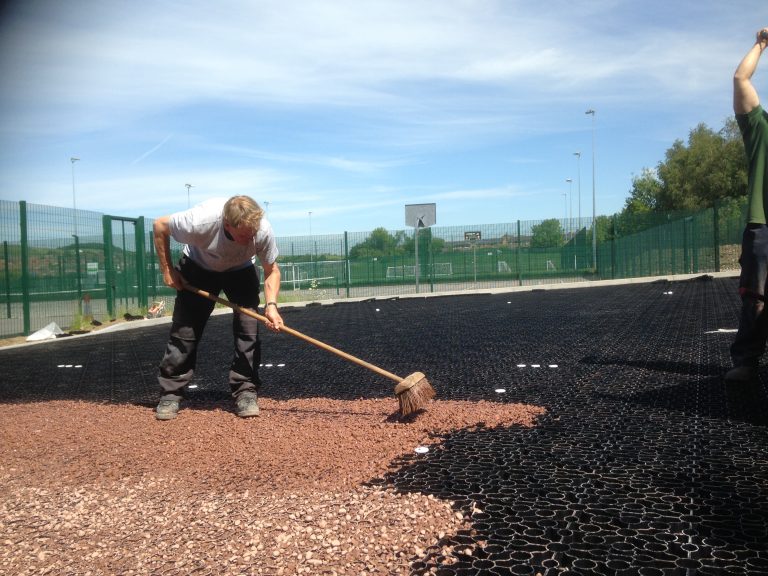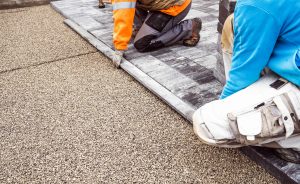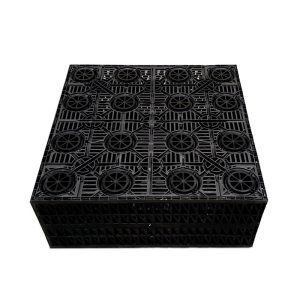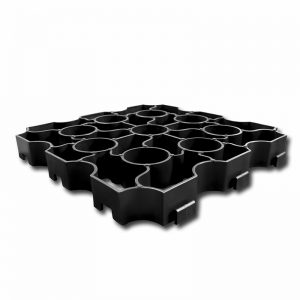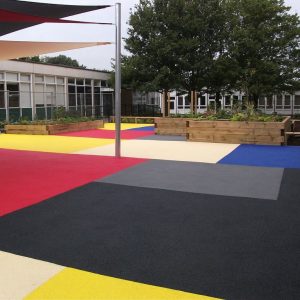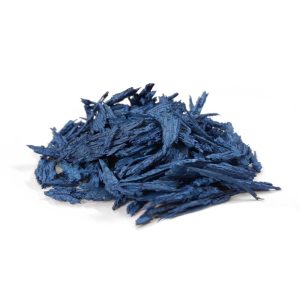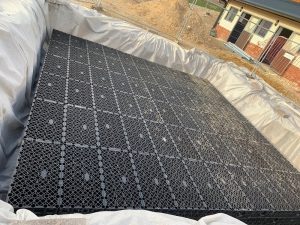
Gravel Driveway Grid
SUDS are environmentally friendly drainage systems
Sustainable Drainage Systems (SUDS) are a collection of simple philosophies and techniques that can help to reduce flooding.
It is a water management method that is designed to successfully handle natural water processes in the urban environment.
This blog post explains what they are, what types there is and why households should look to SUDS to improve their home environment.
What are SUDS?
A Sustainable Urban Drainage System (SUDS) is a system that is designed to both manage the flood and pollution risks that resulting from urban runoff.
SUDs are needed because in impermeable areas, surface water run-off would be collected by roof gutters, downpipes and road gullies and directed into the sewer network. When flash flooding happens, this would often lead to both the foul and surface water spillage out of the drainage network, causing flooding to property.
As urbanisation continues, permeable surfaces are becoming increasingly in demand.
Permeable solutions allow water to flow freely. A SUDs solution works as a natural approach to managing drainage – working by slowing and holding back water supply from a site.
A SUDs drainage system reduces the impact of new and existing developments with respect to water – making it more cost effective and have a very low environmental impact.
What is a SUDS compliant pavement?
There is a tendency for contractors, homeowners and governments to refer to “SUDS-compliant pavements” as “permeable pavements”.
These are defined as any pavement from which surface water is sent to a SUDS installation from where it may have the opportunity to drain to the ground or be temporarily stored rather than being directly channelled into the public sewer system or an open watercourse.
There is a subtle difference between permeable pavements and SUDS-compliant pavements. The former allows water to pass through the paving structure, whereas SUDS-friendly pavements are designed to direct the surface water to a SUDS installation, such as a soakaway.
Attenuation
In some cases, a SUDS installation may result in some of the collected water entering the sewer systems, but in a way that reduces the impact on the sewer system, most often by attenuation.
Attenuation is the process of slowing down, braking or delaying surface water. This is done by collecting water and is released in and slow and steady manner.
Using an attenuation system is cost-effective as it reduces surface water drainage charges.
The SUDS compliant surfacing helps to take away some of the strain on the national drainage network, particularly during heavy rain. Attenuation can be applied to driveways and footpaths which are porous and SUDS compliant.

Gravel Driveway Grid
Environment agency on SUDS
“Traditional drainage to manage surface water run-off is designed to carry water away quickly, without treatment and can rapidly transfer pollutants and large volumes of water to streams, rivers, lakes and estuaries. While there is no specific legislation to ensure that issues of sustainability are considered with regard to drainage, sustainable drainage systems (SUDS) have been encouraged in the urban environment through local Agenda 21 initiatives and through planning policy PPS25 (England) and TAN 15 (Wales) which directly identify their potential to reduce flooding. SUDS mimic the natural drainage characterising the site prior to development.
“For example, erecting buildings and creating impervious roadways or car parks is likely to remove an area of land which previously allowed infiltration of rainwater and surface run-off. Rather than directing the run-off as rapidly as possible to a receiving water body, sustainable drainage systems seek to minimise the impacts of development on the quality and quantity of run-off, while maximising amenity and biodiversity opportunities.”
What types of SUDS are available?
SUDS can include a number of different components, from large to small-scale features.
Wetlands: e.g. shallow ponds, wetlands and reed beds that provide story attenuation, sediment settlement and pollutant removal.
Swales: Vegetated drainage channels or troughs with a shallow gradient to reduce flows to provide storage, conveyance of surface water, infiltration and settlement of pollutants.
Trees: These can help surface water management through transpiration, interception and filtration.
Permeable pavements: These are pavements and hard surfaces that allow infiltration or temporary water storage.
Soakaways: Excavated pits providing better infiltration, storm-water attenuation and groundwater recharge.
Rain gardens or filter strips: Vegetated strips which accept runoff providing vegetative filtering, settlement of particulate pollutants and infiltration.
Green roofs and living walls: Vegetated roofs and walls of buildings that reduce runoff and peak flows.
SUDS Compliant Solutions
Gravel Grid
Permeable and durable recycled plastic gravel grids, which have been manufactured from recycled materials. Each product is versatile and can be used on a wide range of applications including car parks, driveways, access routes, golf courses, paths, walkways, camp sites, equestrian areas and more.
The permeability means that any rain or water that fall into the installation area to naturally drain away through the open structure and into the ground below.
X-Grid can withstand up to 420 tonnes per square metre. It is chemical, weather and UV resistant to ensure it will not rot away or break down over time.
Wet Pour Surfacing
Wet Pour Surfaces are impact-absorbing, rubber crumb floor which is traditionally used in playgrounds, parks and other recreational areas.
This two-layered system is created using an SBR sub-base topped with a coloured EPDM layer to create a vibrant and safe surface which cures after around 24-48 hours.
Rubber Mulch
Rubber Mulch is a soft, strong, permeable rubber surfacing product for use around play areas, playgrounds, parks and other recreational areas.
It is a natural-looking, easy to install product that is low maintenance, permeable, impact absorbing and wheelchair friendly.
Permeable rubber mulch allows rain and surface water to drain naturally away into the ground below.
Resin Bound Gravel
Resin Bound Gravel is a SUDS compliant solution used in conjunction with a porous base. A wide range of colours, blends and sizes are available to tailor to surrounding areas.
It is ideal for car parks, footpaths, driveways and gardens.
It is permeable, colour stable and slip, weed and frost resistant.
Soakaway Crates
Soakaway Crates are constructed using modular water storage cells. Water storage crates have been specially designed to store a large capacity of water and can also be stacked high to create large water storage systems.
SUDS compliant crates allow users to reuse stored water or redirect the flow at any acceptable rate to reduce surface build-up and localised flooding.
Conclusion
Sustainable Urban Drainage Systems (SUDS) are water management methods that are designed to successfully handle natural water processes in the urban environment.
SUDS are needed because in impermeable areas water is directed into the sewer network – and when heavy rainfall occurs this can result in flash flooding.
As urbanisation continues, this problem could worsen.
There are various types of SUDS, from soakaway crates to green, vegetated roofs.
At GCL we have a range of eco-friendly, SUDS compliant products. For more information call us on 01246 418144.
Alternatively, continue us on webchat or email us here.

Gravel Driveway Grid


